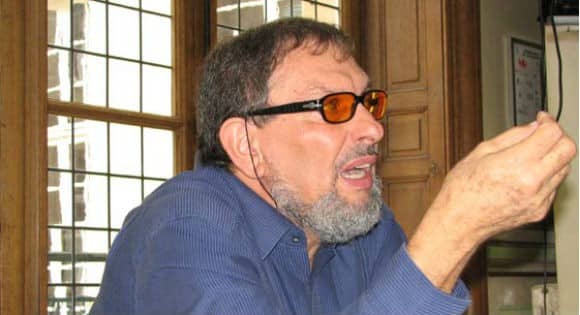Salem Chaker was born in 1950 into a Kabyle family from the Tizi-Ouzou region in Algeria. Growing up in a culturally rich and historically significant Amazigh region, Chaker developed a deep interest in the Berber (Amazigh) language and its linguistic evolution. Chaker is a professor emeritus affiliated with IREMAM (UMR 7310, Aix-Marseille Université/CNRS).
His academic journey began at the Faculty of Letters of Algiers, where he worked from 1973 to 1981. His dedication to Amazigh linguistics led him to become a professor of Berber language at the Institut National des Langues et Civilisations Orientales (INALCO) between 1977 and 1979, and again from 1988 to 2008. His career continued at Aix-Marseille University (1981-1988, 2008-2018), where he played a crucial role in introducing and institutionalizing Berber language studies.
Salem Chaker is a specialist in descriptive and historical linguistics of Amazigh. His work has significantly contributed to the academic recognition and preservation of the Amazigh language. During his tenure at INALCO, he helped strengthen Amazigh studies by establishing the Centre of Amazigh research, a center dedicated to Amazigh language, history, and culture.
Salem Chaker has authored numerous significant works in Berber linguistics, syntax, and historical studies. His notable books include Un parler berbère d’Algérie (Kabylie): Syntaxe (1983), which provides an in-depth analysis of Kabyle syntax, and Textes en linguistique berbère (1984), an introduction to the field of Berber linguistics. He collaborated on Textes touaregs en prose de Charles de Foucauld (1984), a critical edition of Tuareg prose. His bibliographic study Une décennie d’études berbères (1980-1990) (1992) explores language, literature, and identity. In Linguistique berbère: Études de syntaxe et de diachronie (1995), he examines Berber syntax and historical linguistics.
His more recent works include Berbères aujourd’hui: Kabyles et Berbères : luttes incertaines (2022), which discusses contemporary Amazigh struggles, and Diachronie Berbère: Linguistique historique et libyque (2024), which delves into the historical aspects of Amazigh linguistics. He also contributed to Le dictionnaire Tamazight du Maroc central, an electronic dictionary based on Arsène Roux’s archives, accessible online. His extensive research has played a vital role in the preservation and advancement of Berber studies.
Chaker’s contributions extend beyond academia; he has been an advocate for Amazigh cultural recognition and linguistic rights. His research and teachings have shaped the modern understanding of Berber linguistics, ensuring that the language is not only studied but also revitalized for future generations.
His work continues to inspire students, researchers, and Amazigh activists, making him one of the most influential figures in Berber linguistic studies today.

